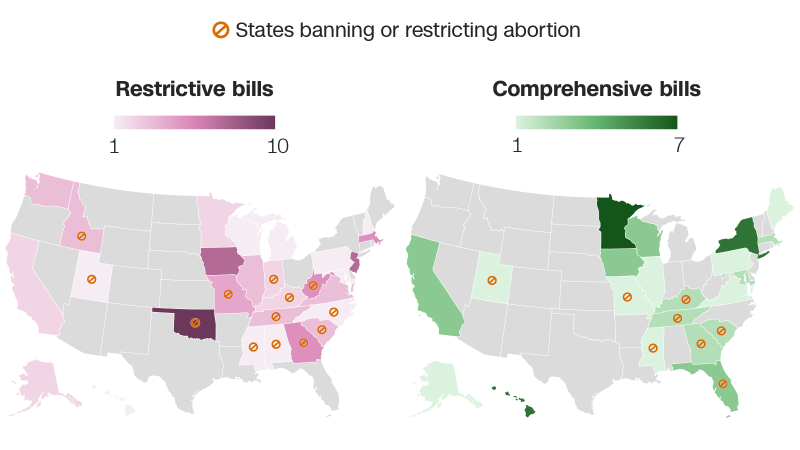The year 2024 has seen a significant increase in the number of sex education bill proposals in state legislatures, with at least 135 bills introduced or currently active as of April 12. The majority of these bills seek to place restrictions on sex education in K-12 public schools, following the Supreme Court’s decision to eliminate the federal constitutional right to abortion in 2022. This has led to a surge in legislation restricting how sex education is taught, especially in states with limited abortion access.
Since 2018, there has been a shift in the type of sex education bills introduced in state legislatures. Last year marked the first time that restrictive bills outnumbered comprehensive bills, with proposals ranging from bans on discussions of sexual orientation or gender identity to emphasizing abstinence in sex education curricula. This contrasts with previous years when the focus was on making sex education more comprehensive and medically accurate.
There has also been a rise in bills emphasizing parental oversight of sex education, with requirements for educators to notify and obtain consent from parents regarding what can be taught to their children. Bills such as Kentucky’s House Bill 304 aim to restrict what topics can be taught based on parents’ religious or moral beliefs and give parents the right to sue schools for violations. Additionally, proposals to ban sex education instruction in specific grade levels, particularly elementary school, have become more common.
While there has been a push in previous years to include instruction on human trafficking, child sexual abuse, and dating violence prevention in sex education curricula, these efforts have dwindled in recent years. Bills seeking to ban early childhood sex education have also been introduced, leading to concerns about the impact on essential topics such as consent, speaking up for oneself, and using anatomically correct terminology to reduce child sexual abuse.
Despite the increase in sex education bills introduced in state legislatures, only a small percentage have been passed into law. Conservative lawmakers are exploring indirect approaches to impact sex education, such as through bills that prohibit abortion providers from writing materials related to sex education curricula. The surge in legislation targeting sex education this year is believed to be linked to the upcoming election, with lawmakers making their stance clear on issues related to sexual health education.
In conclusion, the landscape of sex education legislation in state legislatures has shifted dramatically since 2018, with a focus on restrictions rather than comprehensive education. The impact of these bills on access to information about sexual health and rights is significant, particularly in states with limited abortion access. It remains to be seen how these bills will ultimately shape the future of sex education in the United States and whether they will be successful in passing into law.


